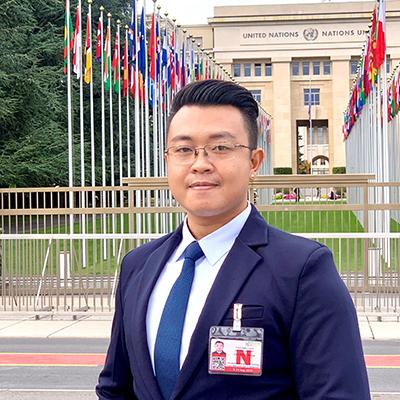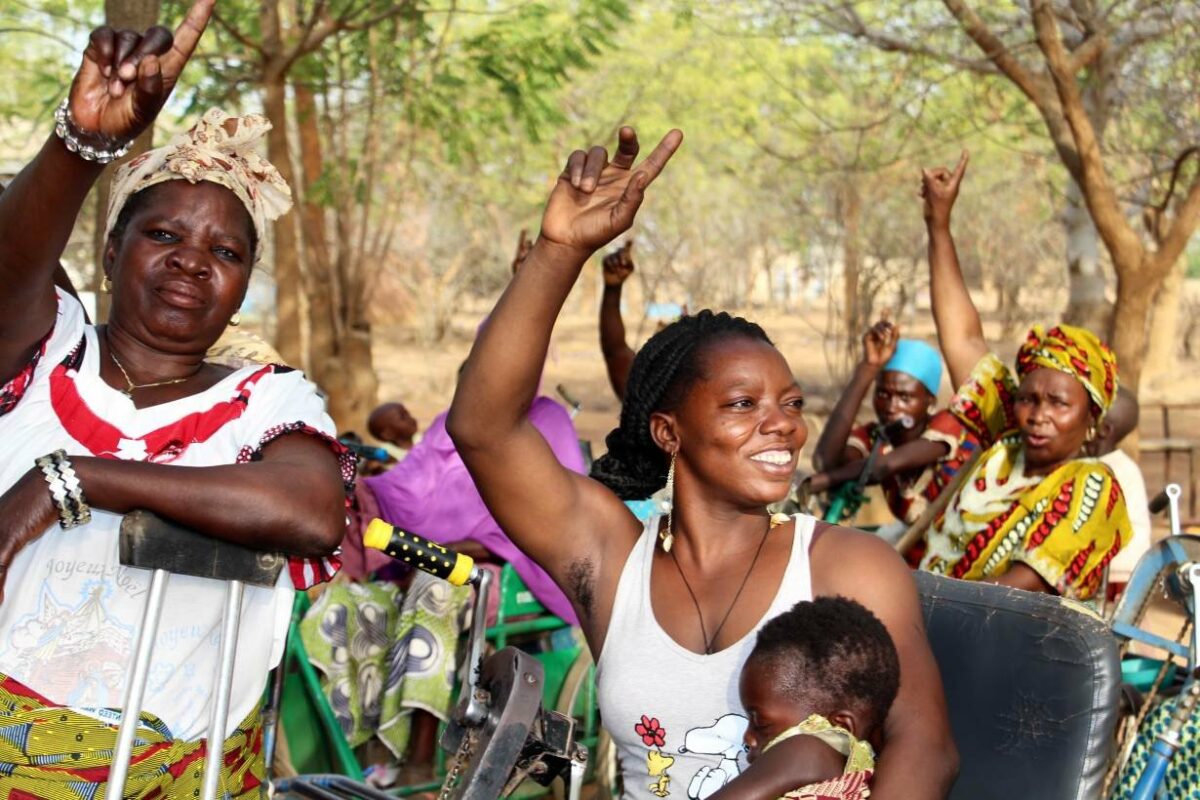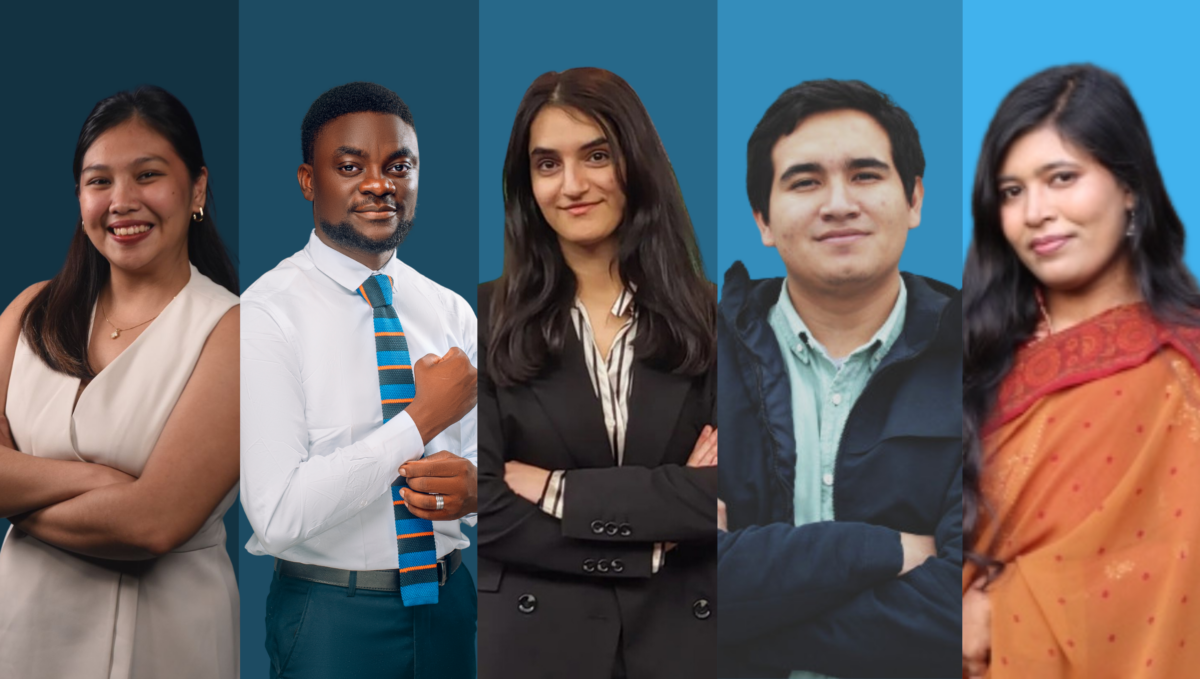This month, the Consortium for Elections and Political Process Strengthening (CEPPS) is celebrating #CEPPSGlobalPride! In support of our global commitment to the empowerment and inclusion of marginalized populations in political processes, we are recognizing the essential work of CEPPS partners to support lesbian, gay, bisexual, transgender and intersex (LGBTI) inclusion and equality. In this series, we are highlighting some of our partners around the world who are at the forefront of fighting for LGBTI equality and inclusion in democracy and governance.
As part of the International Foundation for Electoral Systems’ (IFES) work in Myanmar, we partner with the Civil Authorize Negotiate (CAN) Organization to support LGBTI rights. CAN is a nongovernmental organization based in Mandalay focused on human rights. CAN’s priorities are LGBTI rights, civil rights awareness and advocating for these rights with the public, government, the media, Parliament and lawmakers. IFES interviewed U Kaung Zaw Htet (Owen, he/his), program director at CAN, about his organization’s work to support LGBTI equality.

As part of the International Foundation for Electoral Systems’ (IFES) work in Myanmar, we partner with the Civil Authorize Negotiate (CAN) Organization to support LGBTI rights. CAN is a nongovernmMyanmar has a conservative culture, influenced by patriarchal norms. Many in Myanmar society think that LGBTI persons who do not match with their biological sex and gender or who do not have a certain sexual orientation should not be leaders. This stereotyping takes the form of shaming LGBTI persons, portraying LGBTI persons as abnormal and treating LGBTI persons as lower status. This happens in all sectors of Myanmar society and leads to widespread discrimination and violence against LGBTI individuals. Therefore, many people identifying as LGBTI cannot disclose their identity openly for fear of facing discrimination and violence. This limits their ability to fully live their lives and limits their roles in society.
Many people in Myanmar do not understand and accept the rights of LGBTI individuals and their contributions to society. Furthermore, there are laws relating to different sexual orientations in Myanmar, such as penal code Section 377 and the Police Act, that suppress the rights of LGBTI individuals and make LGBTI individuals afraid. Because of such laws, LGBTI individuals are marginalized and not able to be fully involved and contribute to the important sectors in our country such as politics, economics, social life, education, health care and culture. The impact of discrimination in different sectors also limits civic and electoral awareness and participation organizations based in Mandalay focused on human rights. CAN’s priorities are LGBTI rights, civil rights awareness and advocating for these rights with the public, government, the media, Parliament and lawmakers. IFES interviewed U Kaung Zaw Htet (Owen, he/his), program director at CAN, about his organization’s work to support LGBTI equality.
To address LGBTI discrimination, CAN is conducting trainings, holding workshops, conducting campaigns, facilitating forums and distributing awareness-raising information to the public, authorities and lawmakers. This information includes articles, magazines and reports covering topics relating to sexual orientation, gender identity and expression and sex characteristics.
During the pandemic, LGBTI individuals, especially those from outside the major cities, have lost their jobs and income. Additionally, there are the financial burdens of buying necessary materials to prevent the spread of the virus such as masks, hand sanitizer, soap and gloves. This makes it harder for LGBTI individuals to access these materials, which makes it even more difficult to be involved in upcoming electoral and campaign events, which are often conducted in crowds.
To better enable LGBTI involvement in electoral activities for the upcoming election, the government should:
There are opportunities to reduce discrimination and violence because LGBTI groups, such as ours, can pressure government and lawmakers online rather than in person, following social distancing restrictions and taking other precautions that protect others’ health.
Pride means disclosing your sexual orientation proudly and raising awareness together with all LGBTI members in a united front for advocacy. It means fighting for equality and justice without staying silent in the face of discrimination and suppression. Though suppression and discrimination exist throughout Myanmar, it is very important to inform the public about this discrimination and marginalization to transform policy and people’s behavior.
This interview was translated into English from Myanmar and has been edited slightly for clarity by Gina Chirillo, senior gender program officer at IFES.
Published on June 23, 2020. Learn more about IFES’ work on participation and inclusion.
—
View original story at IFES.org


